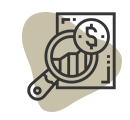online research
Apart from Google alternatives, it’s nice to see search engines designed specially for children and teenagers. Credibility, safety, and an orientation to learning are the common themes of these relatively new sites. Here are some.

In terms of attitudes to Internet use, we see all sorts today. Some still use paper and pen, only occasionally looking up information online, while others do everything online. Just the same way, some read print newspapers, others read their news online, and so on.
YouTube EDU is news to me. I'm still wondering how I missed it—it’s pretty much like TV channels and classrooms right on the funny-videos site! So I took a good look, and here are the channels I liked best.
The big tech news item for me in the past couple of weeks has been about Google Cloud Connect. It allows users to use MS Office within the Cloud. This is real news, and good for users—in the Cloud, on the fly, (almost) seamless between Office docs and Google Docs. Now Google Docs and Google Translate are integrated, so the “problem” as I see it is, maybe users will soon begin to depend exclusively on quick translations?
Those of us who have given a serious thought to using some other search engine—other than Google, that is—have usually ended up staying with Google. It's a habit.
In various “e-learning prediction lists” at the start of 2009 and 2010, Mobile Learning was near the top—many people spoke along the lines of mobile learning "really taking off" this year.
Search is harder in 2010 than it was in, say, 2006, even though search engines are better. But we can help the search engines help us!
It’s hard to find good information without wasting too much time, so here are some broad search tips we’ve been using for a couple of years now.
1: Click first, read next.
Just four or five years ago, "productivity tools" was only a category of software.







